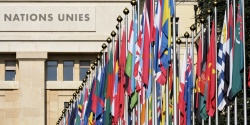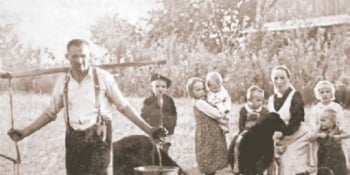Published: 13.01.2023

· The UN Independent Expert on Protection against Violence and Discrimination on the basis of Sexual Orientation and Gender Identity is gathering information from states and civil society on how the protection of freedom of religion or belief affects the freedom of "sexual orientation" and "gender identity."
·The information gathered will be used to compile a report to be presented at the 53rd session of the UN Human Rights Council in June 2023.
· The UN report will "examine the legal, political and ethical dynamics between the human rights of people with different sexual orientations and gender identities and the human rights to freedom of religion or belief."
· The report's premise is based on the claim that religious narratives have historically been used to promote, enable and condone institutional and personal violence and discrimination based on sexual preference or "gender identity."
· According to the expert, exercising freedom of religion and belief could threaten the "human rights of LGBT people."
UN independent expert Victor Madrigal-Borloz, will devote his next thematic report to examining the relationship between the right to freedom of religion and belief and discrimination based on "sexual orientation" and "gender identity." Such a report should aim to conduct an objective study of the relationship between religious freedom and discrimination data. However, the author assumes at the outset that there are undefined "human rights of LGBT people" to be threatened by the free exercise of freedom of religion and belief. Such a view not only contradicts the legislation of many UN member states, but also wrongly elevates concepts of gender ideology (e.g., recognition of multiracialism ) to the status of international human rights. This may suggest that those pursuing these demands are deprived of the protections afforded by the human rights system to all people, or that they should be entitled to some special "human rights." In this context, religious freedom - when it comes into conflict with gender theories - is identified as a threat to the full realization of the ideology's goals and its spread in society.
The very questions outlined by the independent expert to gather information put freedom of religion, belief and conscience (i.e., universally recognized human rights) on the same level as "freedom from discrimination based on gender identity." Moreover, the language used by the expert not only fails to define what is meant by discrimination, but fails to distinguish discrimination and violence against individuals from opposition to ideology. It thus equates a dispute of views with persecution of persons, misleading those called upon to present a position.
The Ordo Iuris Institute responded to the inquiry, rejecting the wording used by Victor Madrigal-Borloz to present the subject of the report. In particular, the Institute stressed that Poland has not accepted gender theory in its legal order and has remained with the natural distinction of gender through biological characteristics. Finally, the prohibition of discrimination, equal treatment and protection from violence, are subject to constitutional protection in the Republic of Poland, which covers all citizens. The Polish legal system fully protects everyone. Diversity, equality and, above all, the right to privacy and the belief in the dignity of every person, have been embedded in Polish culture and tradition for centuries.
- The assumptions on which the report is based foreshadow a highly ideologized final document. Its purpose seems to be to indicate how "gender identity" should be perceived by lawmakers, religious leaders and individual citizens, rather than to collect objective data on the subject. The language used, ignoring the existence of differing positions on gender theory, classifies as discrimination anything that is not an affirmation of the claims made by proponents of rejecting the anthropological and biological basis of gender identification. The approach thus constitutes a form of abuse of the UN's authority to pressure them and direct their domestic policies in a particular ideological direction," commented Veronika Turetta, an analyst at the Ordo Iuris Institute's Center for International Law.

17.04.2025
• The Ordo Iuris Institute has prepared an opinion for the UN as part of a thematic report on surrogacy and its impact on the rights of women and children.

• Representatives of Ordo Iuris took part in the second round of consultations ahead of the 58th Session of the UN Commission on Population and Development (CPD58) on global health policy.

03.04.2025
• The Advocate General of the Court of Justice of the European Union (CJEU) has issued an opinion in a case involving a same-sex couple’s demand for their German marriage to be recognized as a marriage in Poland.

24.03.2025
On the 81st anniversary of the martyrdom of the Ulma family and the Jews they sheltered—who died at the hands of the German occupiers of Poland—the Ordo Iuris Institute is releasing a special commemorative infographic.